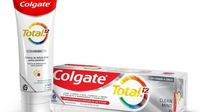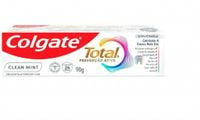On Thursday, March 27, 2025, the Brazilian National Health Surveillance Agency (Anvisa) suspended the sale of Colgate Clean Mint toothpaste across the country. This decision was made following numerous reports of adverse effects associated with the product, which is a new version of the previous Colgate Total 12 line. The suspension was formally documented in the Official Gazette and is a precautionary measure aimed at safeguarding public health.
According to Anvisa, the action is based on Law 6.360/1976, which allows for the suspension of product sales when there is a potential health risk. The agency reported receiving eight notifications that involved 13 adverse events linked to the toothpaste. The primary symptoms reported by consumers include swelling of the tonsils, lips, and oral mucosa, as well as burning sensations, numbness in the lips and mouth, dry mouth, irritated gums, and redness.
Colgate Clean Mint toothpaste, which began retailing in July 2024, contains stannous fluoride, a departure from the sodium fluoride used in its predecessor. This change has raised concerns among users, as some have experienced severe reactions. Anvisa’s resolution recommends that the product be removed from shelves and not be consumed until its safety can be assured. The suspension is set to last for 90 days, during which time investigations into the adverse reactions will continue.
"These symptoms have significantly impacted the quality of life of consumers, leading to medical expenses, time off work, difficulties in eating and communicating, and emotional distress," Anvisa stated in its announcement. The agency urges anyone who has experienced adverse effects from using the toothpaste to report their experiences immediately through its notification channels.
In response to the suspension, Procon-SP, a consumer protection agency in São Paulo, has notified Colgate to clarify the steps the company is taking in light of the suspension. Procon-SP is seeking information on how consumers can identify the affected products and which specific lots are involved. The agency has given Colgate 24 hours to respond to the notification, which includes a request for images and even a sample of the product for analysis by specialists.
Colgate has publicly stated that its Clean Mint toothpaste is safe for use, although it acknowledges that some individuals may have sensitivities to certain ingredients. The company has provided a customer service channel (0800 703 7722) for consumers to report issues and seek assistance. In a statement, Colgate emphasized that stannous fluoride is a widely used ingredient in toothpastes globally, asserting that it is both safe and effective.
Despite the company’s assurances, the reported adverse reactions have raised alarm among consumers. Many have taken to social media to share their experiences, with some claiming to have suffered from canker sores, painful sensations in the mouth, and other discomforts after using the toothpaste. The Regional Council of Dentistry of São Paulo (Crosp) noted that while all ingredients in toothpastes are approved by Anvisa as safe, reactions are rare. However, they also pointed out that sensitivity to certain agents, such as flavoring agents and sodium lauryl sulfate, can occur.
Dr. Jaime Aparecido Cury, a dentist from Unicamp, explained that the switch from sodium fluoride to stannous fluoride was intended to enhance gum disease prevention due to stannous fluoride's antibacterial properties. He noted that adverse reactions usually cease once the use of the product is discontinued, and he recommended that consumers stop using the toothpaste if they experience any negative symptoms.
The suspension of Colgate Clean Mint toothpaste highlights the ongoing challenges faced by consumers and regulatory bodies in ensuring product safety. As investigations proceed, both Anvisa and Colgate are under scrutiny regarding the efficacy of safety measures and the transparency of communication with consumers.
As the situation develops, consumers are advised to remain vigilant and to report any adverse effects they may encounter. The outcome of this investigation could have implications for product formulations and safety regulations in the oral care industry.




